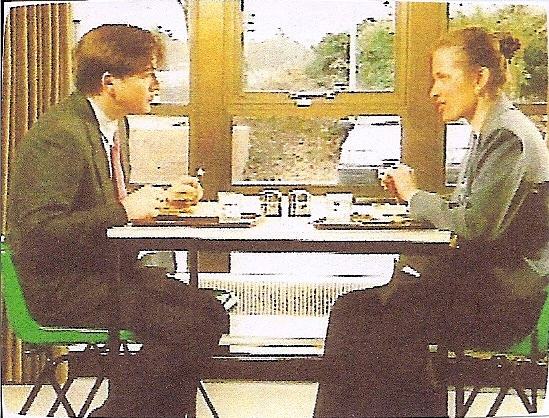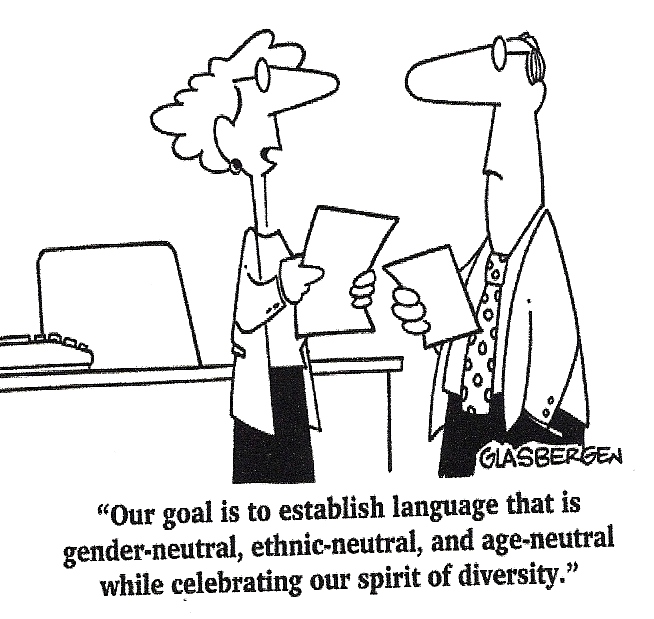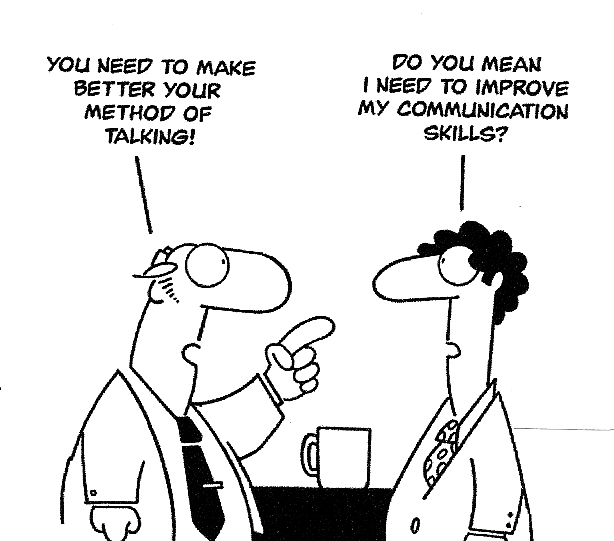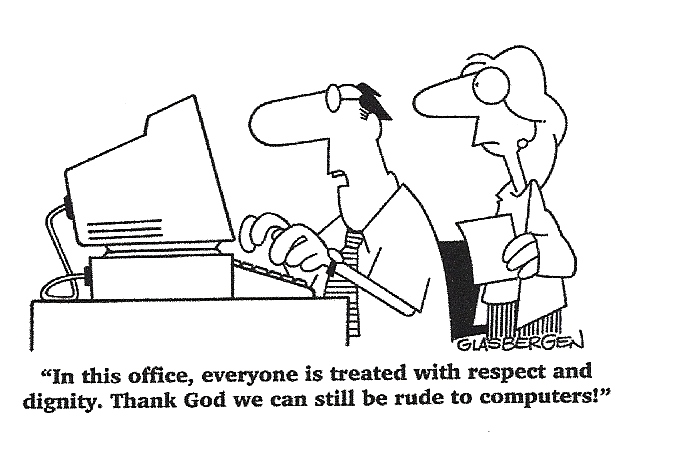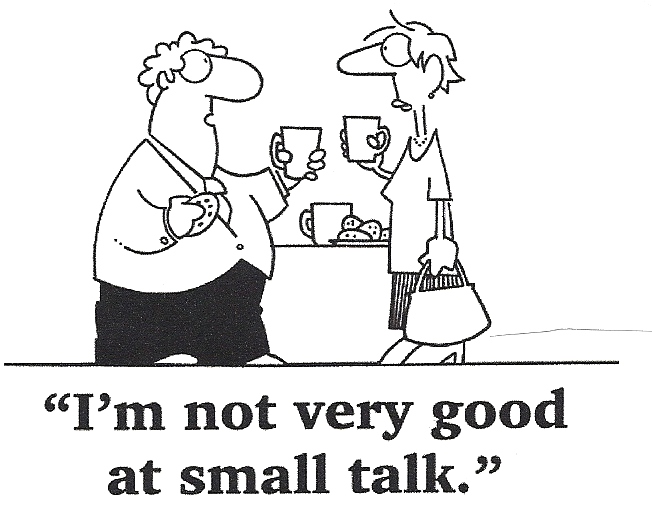
- •Improving Communications
- •Oral communications
- •Written communications
- •7 Tips to become a Good Conversationalist
- •Six Common Mistakes That Spoil Conversations
- •1. Blabbermouthing
- •2. The "take-away" and "me-too" syndrome
- •3. Unsolicited advice
- •4. Interrupting
- •5. Contradicting
- •6. Stingy contributors
- •8 Правил знайомства з діловими партнерами
- •18 Ways to improve your body language
- •6 Чарівних букв
- •Voice and Language
- •Visual aids
- •Fail to prepare
- •No weak opening
- •When I know I have to make a presentation, even a small one before a very limited number of people, I start feeling nervous…
- •When a big meeting is coming up, one that will involve a number of presentations from a range of people…
- •I would say my ability as a presenter is…
- •While I am up on stage, I…
- •Comments about my presentations are generally…
- •If I have to go “off the cuff”…
- •If I could describe public speaking as a food, it would be…
- •Visual aids versus handouts
- •Я к вдало провести ділову зустріч.
- •Introducing the Agenda
- •Introducing the First Item on the Agenda
- •1. What is the desired outcome of the meeting? (How will you know the meeting was successful?)
- •2. Who needs to be there? (And who doesn’t?)
- •3. Is the agenda prepared? (If not now, when?)
- •4. What can I do to prepare? (How can I help others prepare?)
- •5. What can I do to make this meeting succeed? (What is my responsibility?)
- •Discuss the following questions:
- •Exercise 6
- •Negotiating
- •Well, we could make it 7,5 % .
- •The trouble is, the general manager isn't very interested in marketing. He's only concerned about …..5…... If you make it 10%, I might be able to persuade him.
- •But you said…
- •6 Найпоширеніших помилок при проведенні переговорів
- •Communicating with someone in writing
- •The salutation
- •The subject title
- •The body of the letter
- •The parting
- •The signature
- •Inquiries (Enquiries)
- •Поради при написанні ділових листів
- •……………: Always proofread and edit your letters.
- •Avoid the use of …..1….. Words
- •Informal Style Formal Style
- •Identify yourself, if necessary
- •Include necessary information
- •Ten keys to writing an essay
- •Budget your time carefully
- •Read the topic carefully
- •Plan your essay before you write
- •Be sure your handwriting is as clear and legible as possible
- •Follow a clear, logical organization
- •Topic Type a: Contrast/Opinion
- •Use concrete examples and specific reasons
- •Use signal words to indicate transitions
- •Use a variety of sentence types.
- •Check your essay for errors.
- •Електронна пошта
- •Chief, Guy, Sport
- •My Buddy
- •Assumption Junction
- •Peak-a-Boo
- •2 (Suggested answer)
- •Listening 4
- •Contents
- •References
7 Tips to become a Good Conversationalist
We all recognize the differences between those who are able to join naturally in a conversation and those who aren't. We know some of us are just better at it than others, but what we don't all realize is that it is possible to become a better conversationalist through practice.
Have you ever noticed how easily children communicate together? They are usually so happy to talk and play together... and do so without the social strains that we "big kids" do!
How about you? Do you have ease in social contact with others? Our world has gotten smaller and our proximity to others much closer than it used to be... creating an important need to learn the skill of meaningful sharing with people around us. Here are 7 tips to become a good conversationalist:
Become a good listener!
Just listen and really hear what the person has to say. Be interested in what that person has to share and listen without pre-planning what you're going to say next. You will become an admired person for being a good listener.
Run a risk and break the ice!
Rather than sit in painful silence with someone, step up and be the first person to speak. Make an observation about something you notice or pay the person a sincere compliment (with the emphasis on sincere!), or ask an open-ended question to break the ice and get some dialogue happening.
Be as interesting as you really are!
Assume that there are things about you that others will find interesting... and share those things... such as the travel you have done, your greatest life achievement so far, a book you're reading and find interesting, etc. Most importantly, share positive things about yourself and your life experience... most people would rather not hear your complaints.
Leave out the personal details of your life!
There are parts of ourselves and our lives that are not meant to be shared with just anyone... leave them out of casual social conversations. Discretion is a worthy trait to be aware of in life... it is not wanted or required to expose all of your dirty little secrets to just anyone.
Be curious about the person before you!
Most people enjoy having others curious and asking questions about their lives. Be inquisitive and ask questions that will generate interesting dialogue, but remember that the intent is not to interrogate them but rather stir pleasant conversation.
Be aware of your body posture!
Your standing tall and confidently will make a much better impression than if you are slouched or flirty. There are literally only seconds before others make their inner opinion... much of it based on appearance and behaviour.
End the conversation on a high note!
When having these short 2 - 8 minute conversations, be sure to graciously finish the dialogue on an upbeat note before moving on... hopefully a good impression left with each other.
So, go and have fun... step out and be the interesting person that you really are!
Reading comprehension
Exercise 1
Define the sentences as True or False.
Most people hate others asking questions about their lives.
It takes only seconds to make opinion of a person and much of it is based on how a person speaks.
Leave the details of your personal life out of casual social conversation.
Share positive things about yourself, most people would rather not hear your complaints.
Initiate the conversation rather than sit in painful silence.
Pay sincere compliments only to people you know well.
You never get a second chance to make a first impression! If you give people a favourable first impression of yourself, you’ll find them much easier to deal with.
A welcoming smile and a friendly greeting put people at their ease, even if they have had a bad journey, or if they are feeling tired, worried or cross.
Exercise 2
Give your own definition of a good conversationalist using the information from the text. Then read other people’s definitions. Are they different from yours?
Someone who's had a lot of experiences in life and is interesting, yet takes his or her turn and listens attentively and includes the other person, and is not just narcissistic and talks about themselves constantly.
A person who's always got something to say that's different from what everyone else says that tries to break out from "Hi, how are you doing? How's the weather?" A person that has a thousand words in his mind that says a few.
Willingness to listen and not just assert your own view point with the openness to possibly change your mind.
A good conversationalist is somebody who listens and knows exactly what he is responding to. So many times in conversations people are waiting to say what they have to say and don’t listen enough, and it's not a conversation you’re just talking to a mirror.
![]()
Developing relationship
You will hear five short conversations between people who work in the same company. After hearing each conversation, discuss these questions with your partner:
What is the relationship between the speakers?
What are their jobs?
What are they talking about?
How does a relationship change as you get to know someone better?
As you get to know someone, it’s useful to find out what your common interests are. Then you can have a social conversation as well as ‘talking shop’ (talking about business).
Work in pairs
1. Discuss the questions below:
What is small talk?
Which of these topics do you talk about - and which do you not talk about – during the first meeting with a business associate?
|
|
|
Other topics …………………………………………………………………………..
And what difference does it make if the other person is:
a foreigner a man a woman older than you younger than you senior to you junior to you
|
2. Join another pair and compare your answers
![]()
Listen to the recording. An Englishmen Peter Welch, who is a Director of an international company, talks about what he thinks is important in preparing for business contacts with people from other cultures. He mentioned several key areas to find out about. Identify six of them. Did you think of any of the same issue?
1 |
3 |
5 |
2 |
4 |
6 |
![]()
Exercise 1
Match the formal expressions on the left with their informal equivalents on the right.
|
|
Exercise 2
Small talk
Put the conversation in the correct order. The first and the last paragraphs are placed correctly.
a.
b. c. d.
e. f.
g. h.
i.
j. k.
l.
m. |
We were just talking about this new sports centre they are building in town. Do you play any sports at all, Kim? Not yet, no. Why are you doing something? Against Real Madrid? No, I missed it. I had to go to a birthday party. No problem. Oh, before I forget. I’ve got two tickets to see them in Manchester if you are interested. No, me neither. Talking of football, did you see the match last night? Oh, right. Thanks for telling me. Incidentally, have you still got my Rolling Stones CD? Me? Well, not really, I used to play a bit of football. No, nothing special. By the way, sorry to talk business, but did you remember to send that estimate to Clive? Pity. It was a great game. On the subject of parties, have you made any plans for New Year’s Eve yet? Did you? Me too. I was never any good, though. Oops! Yeah, sorry. I meant to give it back to you. I’ll bring in tomorrow. Thanks for lending it to me. Yeah, I sent it yesterday. Oh, that reminds me. Clive said to tell you he won’t be able to make Thursday’s meeting. He said he’d call you. Are you kidding? Of course I’m interested! I’ve never seen them live.
|
![]()
According to Dale Carnegie, author of the all-time best-selling people skills book How to Win Friends and influence people, ‘You can make more friends in two months by becoming interested in other people than you can in two years by trying to get people interested in you.’
Work with a partner to practice keeping up a conversation.
Student A
You are at a cocktail party with speaker B, a very important client. You’ve been having a great time so far, but he /she doesn’t seem to be having much fun. You don’t know him/her very well socially, so try to find out what he/she is interested in his/her ‘hot buttons’. There’s a list of conversation starters and topics. Keep changing the topic until you hit one of his/her hot buttons – he/she must be interested in something! And try to remain cheerful and positive no matter how dull and unfriendly he/she may seem.
Student B
You are at a cocktail party with Speaker A, one of your many suppliers. You generally hate this kind of event and so far you’ve had a miserable evening. Look at the list of topics and choose just two you are prepared to have a conversation about – your ‘hot buttons’. If Speaker A tries to engage you in conversation on any topic apart from your hot buttons, say very little. Do nothing to change the topic, but show enthusiasm if one of your hot button topics comes up.
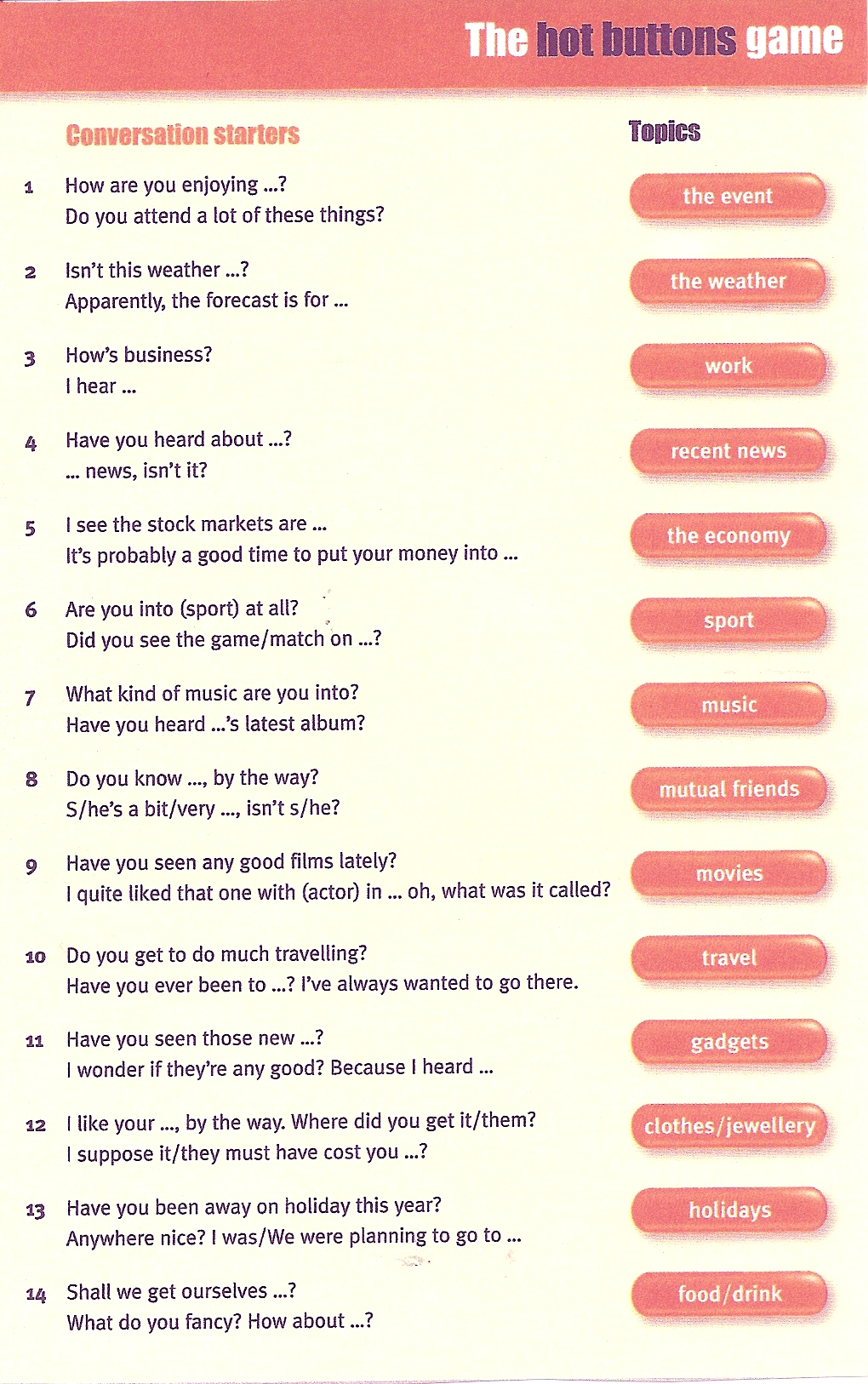
![]()
|
|
|
|
|

Task 1
Choose one of the articles and take the following steps:
read the article.
identify the main points.
write down 10 questions.
make the vocabulary card (new words, phraseological expressions, idioms, etc).
prepare and make one-minute presentation on the issue discussed in the article.
1

